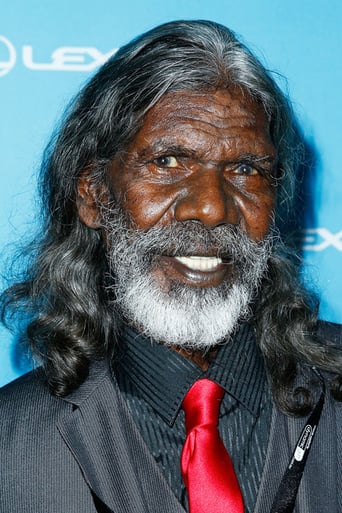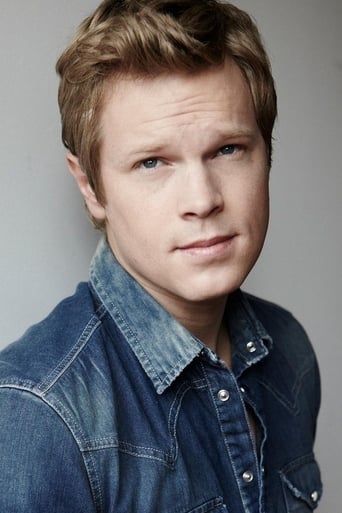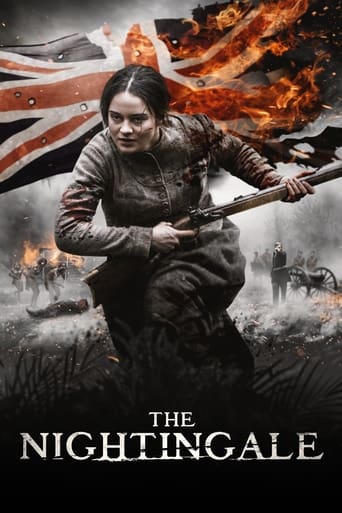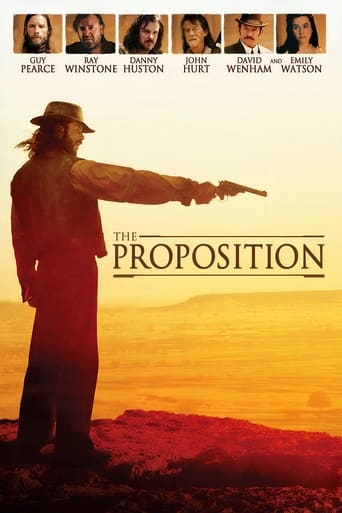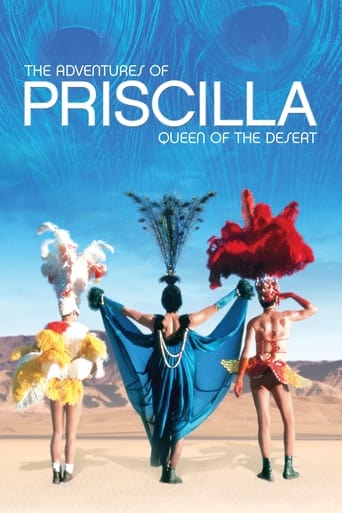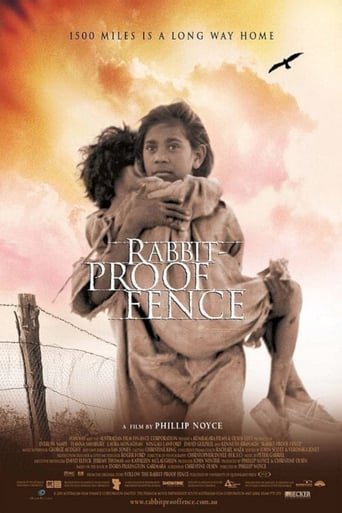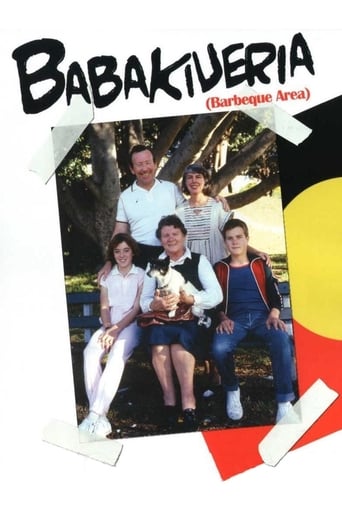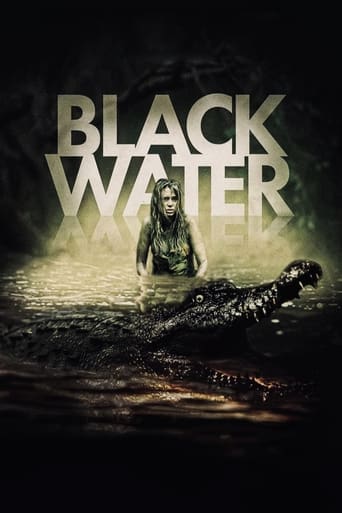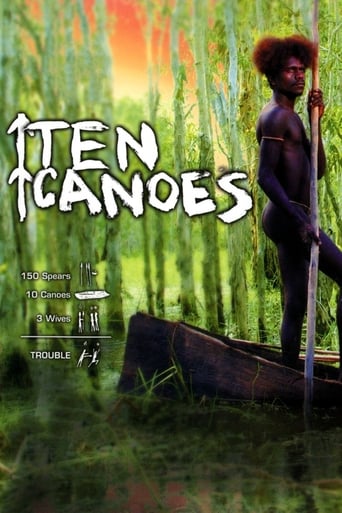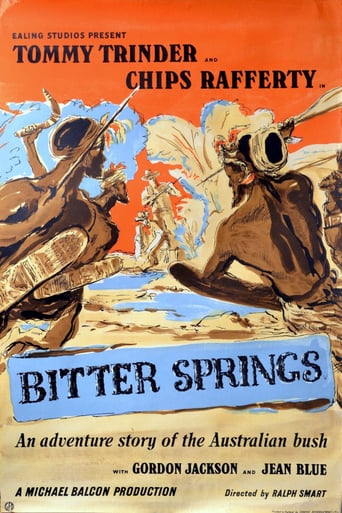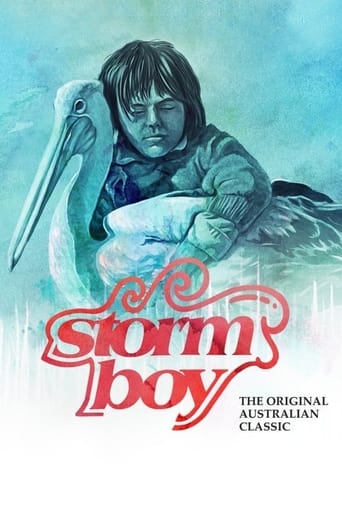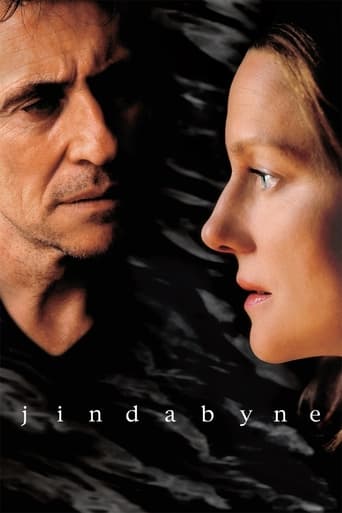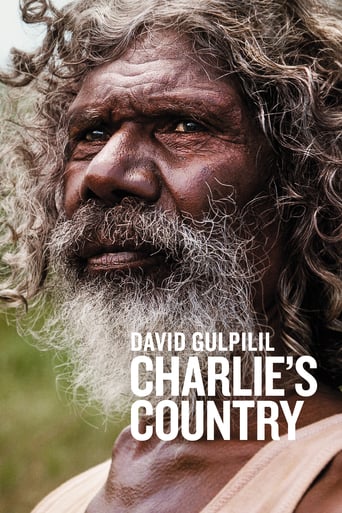
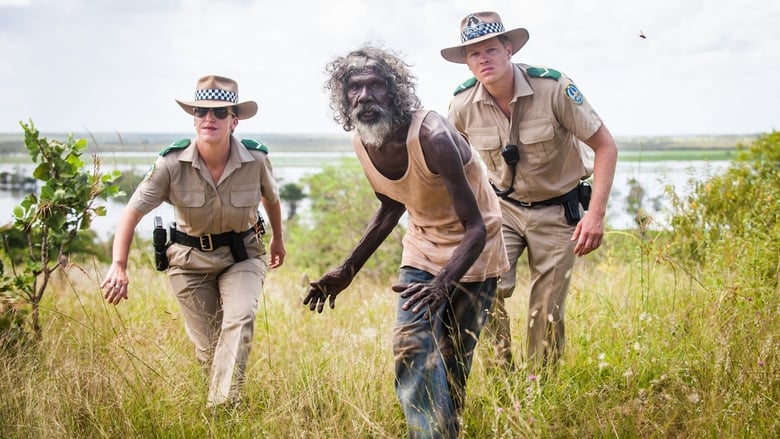
Charlie's Country (2013)
Blackfella Charlie is getting older, and he's out of sorts. The intervention is making life more difficult on his remote community, what with the proper policing of whitefella laws that don't generally make much sense, and Charlie's kin and ken seeming more interested in going along with things than doing anything about it. So Charlie takes off, to live the old way, but in doing so sets off a chain of events in his life that has him return to his community chastened, and somewhat the wiser.
Watch Trailer
Cast


Similar titles
Reviews
Director Rolf de Heer who also created another classic aboriginal cultural issues flick, Ten Canoes 2006 plus other classic flicks, Bad Boy Bubby 1993 and Dance Me to My Song 1998 has created another gem in Charlie's Country.Starring David Gulpilil who has been in other classic aboriginal cultural issues flicks, Walkabout 1971, Rabbit-Proof Fence 2002 and Dead Heart 1996 and other classic flicks, Mad Dog Morgan 1976, The Right Stuff 1983, Dark Age 1987 and The Proposition 2005.Also starring Luke Ford who has been in other classic television series, Bikie Wars: Brothers in Arms 2012 and a series of Underbelly 2008-2013.I enjoyed the realistic portrayal of day to day life.If you enjoyed this as much as I did then check out other classic aboriginal cultural issues flicks, Mad Bastards 2010, Mystery Road 2013 and Toomelah 2011.
Rolf de Heer, director of this film, has a real connection with Australian Aborigines and the really challenging circumstances they find themselves in. David Gulpilil, one of Australia's leading Aboriginal actors, was in the dance troupe that entertained Queen Elizabeth II when she opened the Sydney Opera House in 1973. But now, in this semi-biographical film, back in his country of Arnhem Land in the eastern Northern Territory, he's finding it really hard to fit in. No matter what he does, it isn't right. White man junk food: no good. Going bush to go hunting with a gun: illegal. Make a traditional hunting spear: illegal too – a dangerous weapon. Help the police track criminals: promises go unfulfilled. Doing the best you can for your family: unappreciated, at best. So Charlie heads off and goes bush. And there the challenges continue to pile up. It's an incredibly insightful yet accessible examination of what has proved an insoluble problem for Australia for decades. Pretty much since the British settlers arrived here in the late 18th century and declared that the land was unoccupied (known as Terra Nullius) this situation was set up. Around a third of the film is in native language with subtitles (possibly David's own Yolngu tongue) and this adds to the convincingness of this film. And it has some really funny moments that add to approachability.As a descendant of the British settlers of this country, I have little ideas about what should be done to help the original human inhabitants of our country effectively. What we've been doing isn't working. This film points to the multi-faceted, multi-dimensional problems, but it doesn't find answers either. Maybe there aren't any, except time. Long time - generations. Anthropologists say Australian Aborigines have been here for at least 40,000 years, maybe up to 60,000. Imposing most of western civilisation's development onto an incredibly long lived culture in less than 200 years has obvious challenges. I think this film gives an authentic insight into the issues, and highlights that broadly workable solutions have yet to be found, in a genuinely entertaining way.
Dutch Australian film director Rolf de Heer take a look of the years running problems of Aboriginal Australians in his last movie Charlie's Country which is shown in many festivals around world. We see the problems caused by two sides from the eyes of an old and stubborn member of Aborigins, Charlie who feels like a outlander on his own lands.Charlie can't accept being assimilated or living like how white Australians impose with the help of his stubborn and shrewd character. With the stunning performance of David Gulpilil Charlie represents all his nation with his riots, outcries, falls and obedience. He makes same mistakes that his nation did but also resists to forget his roots deep in the lands. He is driven away from his village to wild, from there to the big cities and it's crowd and chaos. It takes time for him to accept that this land is same land he loves with every living on it even it has changed.Director's style resembles our Cannes awarded director Nuri Bilge Ceylan with long cuts and silent scenes. Showing same scenes in different spirits and witnessing alteration of Charlie in these scenes can be boring. And yet this style of filming helps a lot to feel the characters and their states better and deeper. Audiences feel all strugglings of all Aborigins from the eyes of Charlie.Fortunately de Heer was in theater for answering questions of us. His care to Aborigins impressed me and hearing all questions about Aborigins proved that he did really good job in his movie with making a difference for Indigenous Australians in the eyes of everyone who watched the movie. That means shooting the target you aimed. I hope it will not take centuries to solve all issues in Australia as he said.
Charlie's Country has a lived-in lead performance, complimented by clean photography, but does the film's love for its central character diminish its ideological objectivity? The socio-political issue the film takes aim at is the restrictions brought upon by "the invention" or the Northern Territory National Emergency Response. Charlie (David Gulpilil) is living in Ramingining, an indigenous community in the Northern Territory, which is a dry area. Charlie is pestered for his welfare payments by his relatives in the area. Although he provides for people, he feels suffocated. He wants his own place, away from all his relatives, but he is told he already has one. He is also frustrated by the restrictions imposed by the local police (one of which is played by Luke Ford). Charlie decides to return to traditional living in the bush. Not only does this make him extremely ill but it also leads him into a new destructive life path while his friends have either adapted to the modern world or they are dying. It takes great sensitivity to write or film a story about cultural problems in any country, given the delicacies of these discussions and the emotions they evoke in people. One can only imagine the difficulty of approaching this subject as an outsider. For a Dutch-Australian filmmaker, who moved from the Netherlands to Sydney when he was eight years old, Rolf de Heer has done remarkably well to make several films about Aborigines. Charlie's Country marks the third part of his indigenous trilogy after The Tracker and Ten Canoes. Each of these films has starred David Gulpilil and although this film is not an autobiography it does contain some biographical elements of this gifted but troubled actor. David Gulpilil has said it is "authentic to my experience of these things". It was his history with alcohol and violence that launched the concept for the film. De Heer visited him in gaol and decided to provide Gulpilil with a film project that he hoped would save his friend from self-imploding. The film's script is co-credited to Gulpilil himself and this has made Rolf de Heer conservative in his approach to the subject matter. Partially a redemption story, the film argues against the restrictions placed on the community by adopting Gulpilil's own values and viewpoint against colonisation. Rather than looking at contextual details like why the alcohol restrictions are emplaced, the film focuses on the lack of money, the poverty and bans on alcohol and traditional methods in these communities. What is troubling about the film is the simplicity of many of these arguments. One example is when Charlie's unlicensed gun and spear are confiscated from him by the police. "I'm not a recreational shooter. I'm hunter", he argues. Would the situation be different for any white person using an unlicensed weapon? In reflection, it is also an uncomfortable scene given that in real life Gulpilil was charged for wielding a machete in a confrontation before being acquitted. By focussing dominantly on the welfare payments and poverty, the film forgoes an opportunity to show the destruction of alcohol in these communities. Surely the burden of alcohol is part of a universal mirror that could be held up to all Australian societies today. Using a moderately light tone, the subject of intoxication is approached through comedy. Some of the film is quietly funny. One gag shot frames Charlie and his friends drinking in front of the alcohol prohibition sign so they can't be punished. Simultaneously, isn't the joke also soft- peddling the seriousness of the issue? The most damaging of any alcohol related crimes in the film is when Charlie buys grog for a black woman who has been banned from drinking. Out of anger he smashes the windscreen of a police car. Gulpilil's own alcohol related crimes were domestic related and more serious and violent. He served time in gaol after he fractured his wife's arm by throwing a broom at her. When de Heer visited him the director said that he was looked after. The film's version of his incarceration isn't subtle. It lunges desperately for our sympathies. The prison sequences starts with a medium close-up shot similar to the Stanley Kubrick's Full Metal Jacket where Charlie has his head and beard shaved off, followed by repeated images of slops being served and the camera scanning pedantically over the top of a barbed wire. Yet if there is any reason to see the film it is for Gulpilil's performance which is the cornerstone of the entire story. Using his background and the autobiographical details, he completely dissolves into the character but also shows us just how effortlessly he can inject humour and emotion onto the screen as well. He is an engaging presence and undeniably talented. He is also one of the reasons why the film is never short on personality because the decision to have long shot durations and unbroken takes is mostly justified by his purposeful facial expressions. We can see the internal conflict as he watches other people sink by him, forcing him to reconsider his future. I would have liked to have seen this fine performance attached to a less compromised film though. Although the ending features a beautiful dance it is also merely a short-term resolution for Charlie's problems. Nonetheless, perhaps the very sight of this actor taking his opportunity with both hands will be the most significant message for anyone watching this film. A life salvaged, temporarily, by art.


